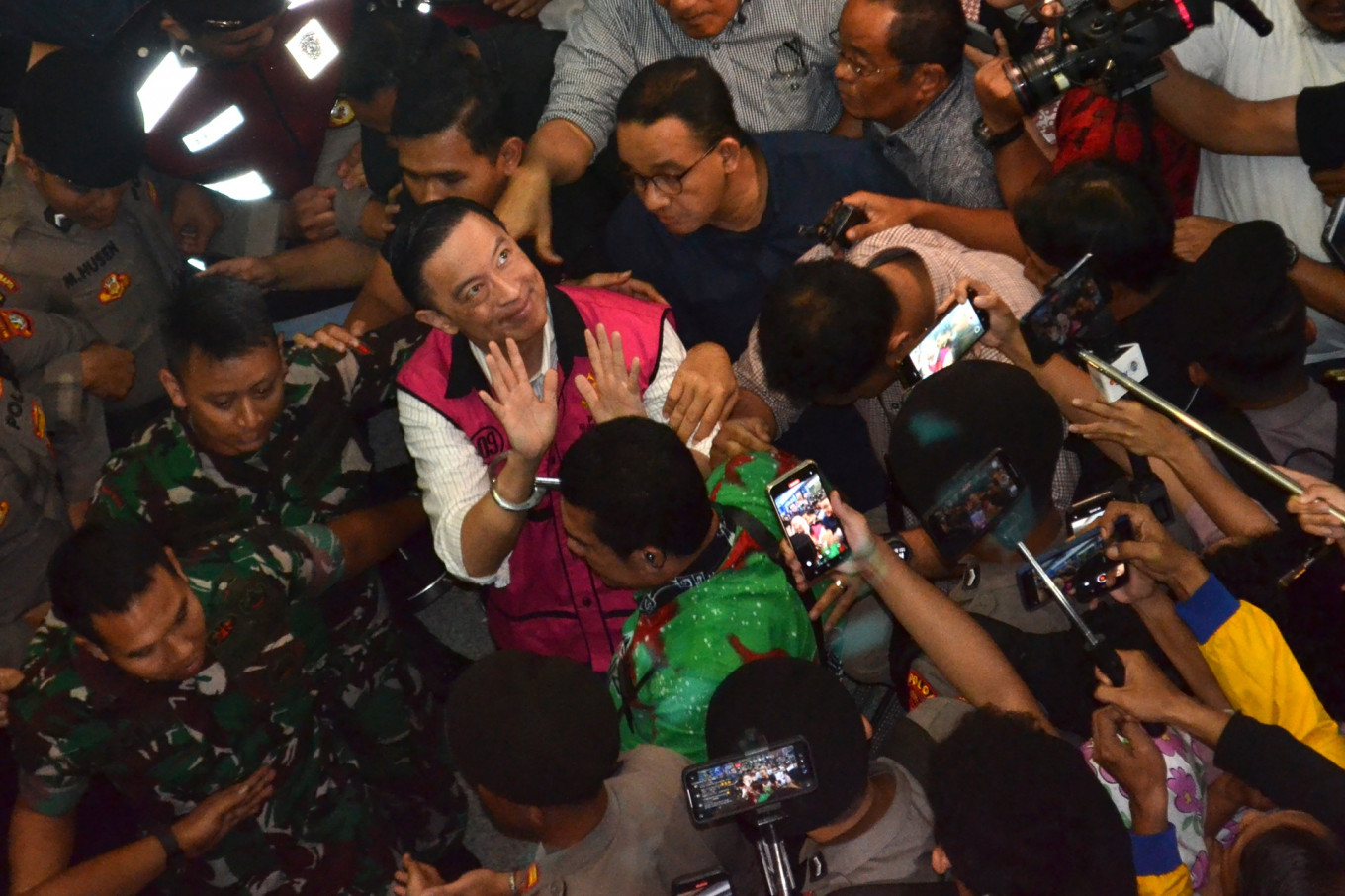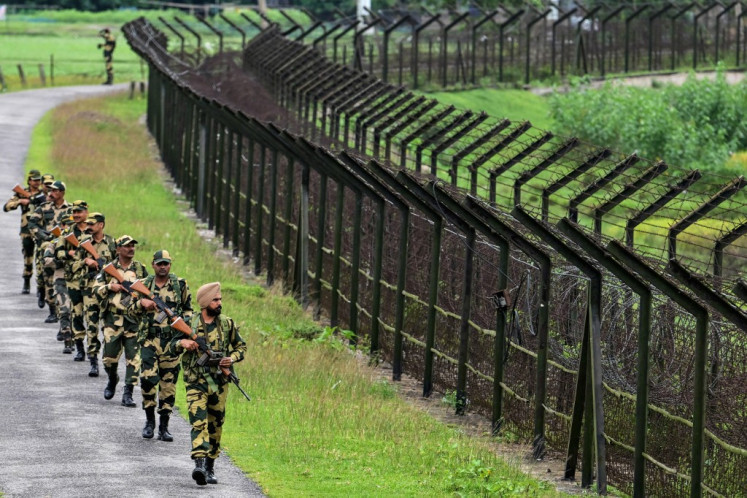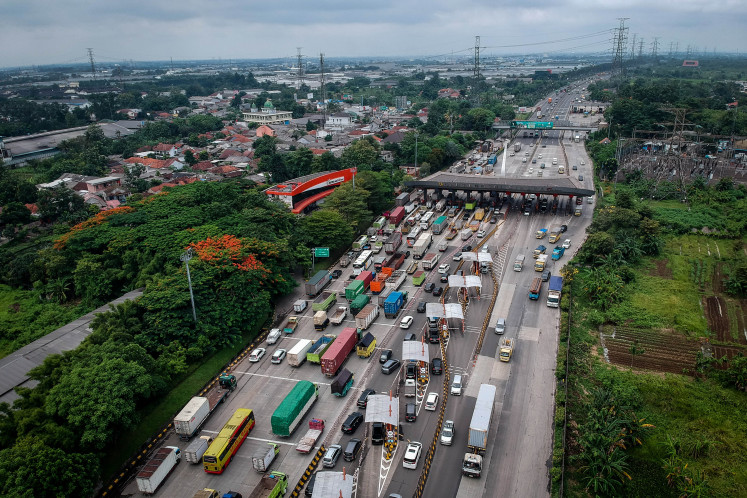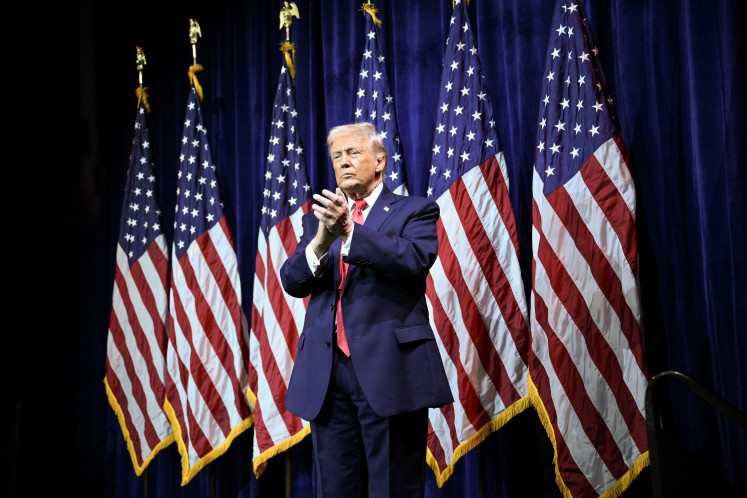Popular Reads
Top Results
Can't find what you're looking for?
View all search resultsPopular Reads
Top Results
Can't find what you're looking for?
View all search resultsBitter justice over sugar import
The legal definition of corruption is so broad that it can be stretched, as the court did in this case, to criminalize a government official for making the wrong policy choices.
Change text size
Gift Premium Articles
to Anyone
 Former trade minister and graft convict Thomas Lembong (center) waves to journalists after the verdict hearing against him at the Jakarta Corruption Court in Jakarta on July 18. A panel of judges sentence Lembong to four-and-a-half years in prison and a Rp 750 million (US$45,871) after finding him guilty in a corruption case pertaining to the import of raw sugar. (Antara/Ertadha Sulthan)
Former trade minister and graft convict Thomas Lembong (center) waves to journalists after the verdict hearing against him at the Jakarta Corruption Court in Jakarta on July 18. A panel of judges sentence Lembong to four-and-a-half years in prison and a Rp 750 million (US$45,871) after finding him guilty in a corruption case pertaining to the import of raw sugar. (Antara/Ertadha Sulthan)
L
ast week’s guilty verdict against former trade minister Thomas Trikasih Lembong raises questions about the extent to which a government official can be incriminated for making the wrong policy decisions.
Since any official, even the president, can, in retrospect, come up with wrong policies, Thomas’s prosecution appears to be cherry picking, with strong speculation that this is a political vendetta by former president Joko “Jokowi” Widodo, waged against a former aide.
The Jakarta Corruption Court found Thomas guilty for his decision in 2015, as trade minister under president Jokowi, to import raw instead of refined sugar to bolster the national stock, and then giving the import licenses to nine private contractors.
Although Thomas did not see a cent of profit, the court claimed that he helped enrich the nine importers and that his action had caused Rp 194 billion (US$11.2 million) in state losses. This sum was the total profit that the nine contractors reportedly made when reselling the sugar, after refining it, to state-owned trading company PT PPI.
Thomas received a four-and-half year jail term under the 2001 Corruption Law which defines corruption as the act of enriching oneself or others and causing state losses. The court did not demand that he return the money, and instead ordered him to pay Rp 750 million in fines.
The legal definition of corruption is so broad that it can be stretched, as the court did in this case, to criminalize a government official for making the wrong policy choices.
During his defense, Thomas said the decision to import raw instead of refined sugar was approved at a cabinet meeting led by then-president Jokowi. He said the import licenses were given out by PPI and that as trade minister he had no direct contact with the contractors.
The CEOs of the nine contractors who profited from the imports are still on trial, as is one of the PPI directors.
Thomas is not the first top government official to be convicted under the corruption law for making a policy decision, but his case raises further questions about the increasingly arbitrary use of the law against anyone who may have offended those in power.
In 2023, Karen Agustiawan, the CEO of the state oil and gas company Pertamina in 2009-2014, was found guilty for corruption over an LNG deal the company signed that went sour, causing $140 million in state losses. The court in the first instance gave her nine years but the Supreme Court raised the jail term to 13 years on appeal.
Harvard-trained banker and financial expert Thomas served as trade minister in 2015-2016 and was later appointed as chief of the Investment Coordinating Board. His service was not extended when Jokowi began his second five-year term in office in 2019.
In 2023, Thomas became an important figure in the campaign team of Anies Baswedan, who was contesting the 2024 presidential election and was the main challenger to candidate Prabowo Subianto with running mate Gibran Rakabuming Raka, son of Jokowi. A Christian and Chinese descendant, Thomas was tasked to win over votes from these two constituents that had eluded Anies.
The Attorney General Office launched the corruption investigation against Thomas in October 2023, shortly after he joined Team Anies, at a time when Jokowi was still in charge. Although Prabowo went on to win the election in February, the case against Tom continued, reflecting the power wielded by Jokowi even when no longer in power.
Thomas' verdict may adversely impact governance, as ministers or top government officials learn they could be incriminated for making decisions that may seem right at the time, but could be proven wrong and deemed as corrupt under the Corruption Law down the road. They cannot assume that their boss, in this case the president, will assume responsibility.
It also raises questions about the credibility and independence of the courts of justice. Have they really become subservient to the political needs of those in power?
Before we pass judgement, let us give the higher courts, including the Supreme Court, the chance to correct this misperception when Thomas' case appeal reaches their desk.










